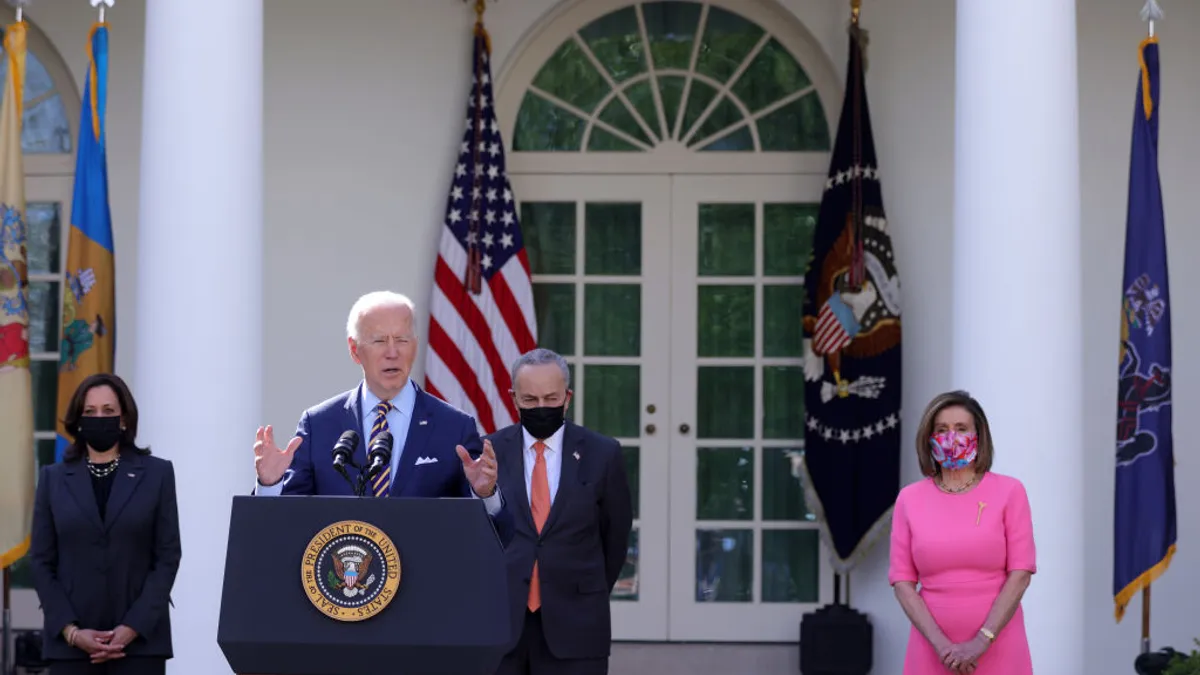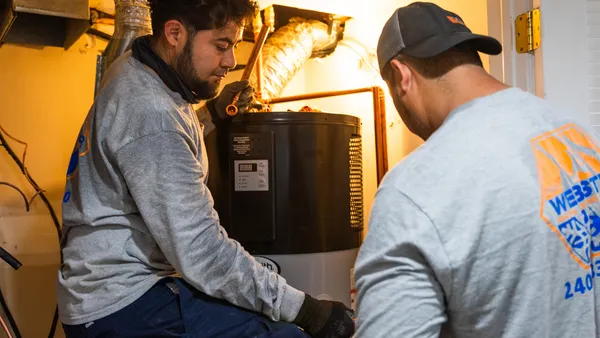Dive Brief:
- The Baltimore Police Department has confirmed that about 8% of its CitiWatch closed circuit cameras throughout the city do not work, The Baltimore Sun reports. Officials' recent count showed 59 of the 744 cameras were not working properly.
- The cameras were not functioning for a variety of reasons including toppled street poles, signal interference and devices reaching the end of their useful life.
- Officials are seeking plans to improve the system but admit it would be difficult to ensure every camera functions all of the time because of the system's size and complexity.
Dive Insight:
The news of the camera challenges comes at a tough time for Baltimore, following a ransomware attack on the government network less than three weeks ago. At the time of writing, the city's homepage still displayed a message that departments cannot receive or send email and all correspondence should be done via phone.
The Baltimore example illustrates a consideration that sometimes gets overlooked when adopting smart technologies: The initial investment is important, but ongoing operating and maintenance costs need to be factored in as well. The police department indicated to The Sun that 8% of the cameras being down is pretty standard and a police union president blamed the current state of the system on neglect and a lack of funding.
Many police departments are now investing in smart technologies to assist with a variety of tasks including solving crimes and speeding officer response times. Police-worn body cameras are widespread and drones are gaining traction. Chicago and Louisville, KY are among the cities using gunshot tracking technology, and Chicago also expanded its smart policing strategies that include predictive technology. Phoenix expanded its use of handheld analyzers to quickly and safely identify opioids and other drugs.
Yet, simply having these technologies is not enough. Cities have to find ways to continue funding streams to achieve long-term success. At a time when many cities echo funding woes, it's a tough decision for leaders to figure out which programs to fund immediately and which can wait for a future funding round. That's especially true for essential services like water or public safety.
Baltimore police said the non-functioning cameras do hinder their investigative process, but leaders have to weigh the cost of camera upgrades against other pressing needs for daily crime fighting.
The camera situation is tough, but it is solvable. One thing working in the city's favor is that the CitiWatch program expanded five years ago to include access to the security cameras of private businesses and citizens who voluntarily grant permission. With more private cameras added by the day — even doorbell cameras — police have the potential to tap into a much wider network than just what the city's cameras offer, at little or no cost to the department.











